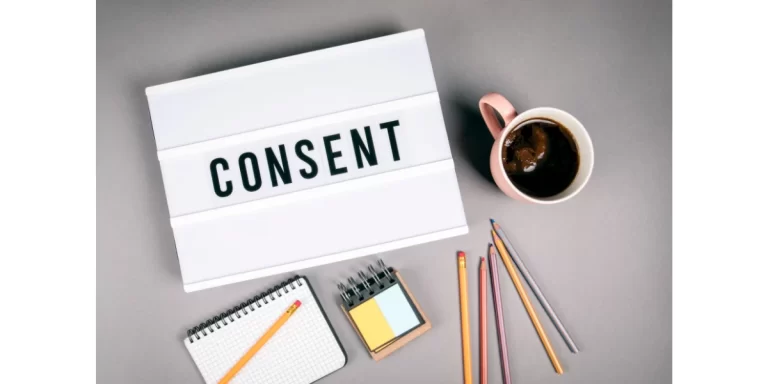Divorce can be a tumultuous time for families, especially for children. The emotional upheaval and uncertainty that accompany separation can be overwhelming for young minds. As parents, it’s crucial to understand how to support your child through this challenging period.
By providing a safe and nurturing environment, fostering open communication, and seeking professional help when needed, you can equip your child with the tools to navigate this difficult transition.
How to Tell Kids About Separation
When explaining separation to your child, it’s best to use simple language.
For example, you could say, “Mum and Dad will be living in different houses, but we both love you very much.” It’s also crucial to avoid blaming your partner or speaking negatively about them in front of your child, as this could confuse them and make them feel like they need to take sides.
While being honest about the changes that are happening, it’s equally important to reassure your child about the things that will remain the same, like your love and care. You could say something like, “You’ll still see both Mum and Dad, and we will always take care of you.”
Be open to their questions and patient in your responses, as your child might wonder where they will live, how often they will see each parent, and what their new routine will look like.
Above all, reassure your child that the separation is not their fault. Many children feel guilty or think they might be the cause of the separation, so it’s important to make sure they understand that it is a decision made by the parents and has nothing to do with anything they have done.
How to Help a Child Cope with Parents’ Separation
It’s important to maintain stability to help your child during a separation. Children do best with a consistent routine, so try to keep their daily schedule, including school, activities, and family traditions, as unchanged as possible.
Stability gives them a sense of security when other parts of their lives are in flux.
Encouraging open communication is also key. Let your child know it’s okay to share their feelings, whether sad, angry, or confused. Assure them that whatever they’re feeling is normal and that you’re there to listen and support them.
Another important step is to remain civil with your ex-partner. Children find it very upsetting to see their parents argue, so do your best to keep disagreements away from them. Respectful communication with your ex-partner can help reduce the emotional burden on your child.
It’s also crucial to avoid using your child as a messenger between you and your ex. Even when things are tense, try to communicate directly with your ex-partner. Using your child in this way can put them in an uncomfortable and stressful position.
If you notice your child is having a hard time coping emotionally, it may be helpful to seek professional support. A child psychologist or counsellor can offer early intervention, which helps prevent emotional harm and allows your child to work through their feelings in a healthy way.
Read Also: 10 Steps to Take When Separating from Your Husband
What Are the Signs of Separation Anxiety in Children?
Separation anxiety is a common fear that children may experience when their parents separate. Here are some signs to look out for:
- Excessive crying or clinging: Your child may cry a lot or refuse to let go of you.
- Difficulty sleeping: They may have trouble falling asleep, staying asleep, or waking up in the middle of the night.
- Loss of appetite: Your child may eat less or lose interest in food.
- Physical complaints: They may complain of headaches, stomachaches, or other physical symptoms.
- Fear of being alone: Your child may be afraid to be left alone at home or school.
If you notice any of these signs in your child, it’s important to talk to them about their feelings and provide them with the support they need.
What Steps Can I Take to Ease My Child’s Fear of Separation?
To help alleviate your child’s fear of separation, it’s essential to create a predictable routine, as stability can greatly reduce anxiety. Prior to parting, brief and positive goodbyes help set a reassuring tone.
Discuss the separation openly, reassuring your child that you will return, and gradually introduce them to time apart through short, initial separations. Moreover, incorporating familiar objects like a favourite toy or blanket during times of absence can provide comfort.
By consistently following these steps, your child can begin to feel safer and more secure despite the changes.
What Steps Can I Take to Ease My Child’s Fear of Separation?
Here are some strategies to help your child manage their fear of separation:
- Establish a consistent routine: A predictable schedule can provide comfort and security.
- Create a comforting object: A stuffed animal or blanket can offer a sense of security.
- Practice gradual separation: Start with short separations and gradually increase the time.
- Use positive reinforcement: Praise your child for coping with separation.
- Seek professional help if needed: A therapist can provide additional support and guidance.
Also read: Legal Steps to Take When Your Wife Leaves You
Can Maintaining Routines Help My Child Cope with Separation?
Absolutely. Keeping a consistent routine is vital during times of change. It offers your child a sense of structure and security amidst the uncertainties of separation.
Routine tasks like regular mealtimes, bedtimes, and even scheduled activities provide predictability, which can be very comforting to children.
This consistency helps them understand that despite the significant changes in the family, their daily life remains stable and predictable.
Seeking Support for Your Child During Separation?
Understanding parental separation can be challenging for families, especially for children. At Justice Family Lawyers, we understand the unique needs of children during this difficult time. Our family lawyers experienced in separation can provide the guidance and support you need to help your child cope with the changes and navigate this transition with resilience.
Don’t hesitate to reach out to us for a confidential consultation. We are here to help you and your child during this challenging period.
Principal of Justice Family Lawyers, Hayder specialises in complex parenting and property family law matters. He is based in Sydney and holds a Bachelor of Law and Bachelor of Communications from UTS.





